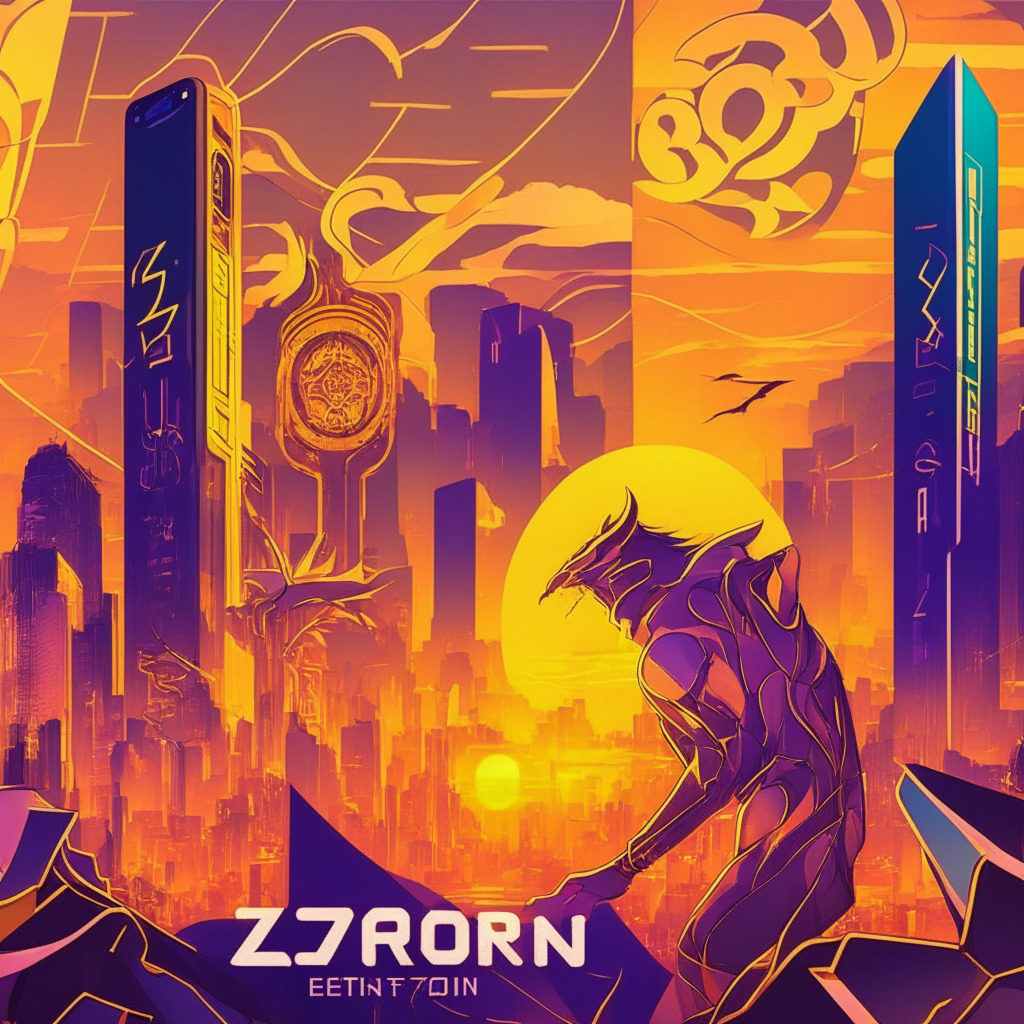“Advanced technologies such as emotion detection, affect recognition, neurotechnologies, and XR increasingly threaten personal privacy by delving into previously inaccessible layers of our existence. These technologies digitize multiple aspects of our lives, raising data protection concerns that impact not only individuals, but also groups and society overall.”
Search Results for: Meta
Navigating the Murky Waters of Metaverse Regulation: UK’s Online Safety Bill & Beyond
The UK House of Lords deliberates if metaverse should be governed by online safety regulations established in the UK’s Online Safety Bill, emphasizing the potential vulnerability of children and adults in these digital spaces. Variations exist in international regulations, raising standardization concerns and questioning the adequacy of traditional legal systems to address rapidly evolving digital spaces.
The Dawn of Web 4.0: Europe’s Grand Plan to Dominate the Metaverse Despite Challenges
The European Commission anticipates ‘extended reality’ to generate 860,000 jobs by 2025, focusing on creating virtual worlds. While most innovation is happening outside Europe, the commission plans to make Europe a “world leader” in Web 4.0 and the Metaverse, despite challenges and lack of tech giants.
Navigating the Metaverse: EU’s Blueprint, Potential Rewards and Imminent Legal Obstacles
In outlining plans for the metaverse, the European Commission expressed optimism for Europe’s potential to lead the technological transition. Predicted worth for global virtual worlds, likely backed by blockchain, could reach 800 billion euros by 2030. However, concerns have been raised regarding aspects such as legal status of avatars, copyright protection, and managing virtual crime. EU legislator Axel Voss also has called for an overhaul of existing laws like the General Data Protection Regulation.
Breaking Down The AI Training Ethical Dilemma: Copyright Claims Against Meta Platforms and OpenAI
Authors Sarah Silverman, Richard Kadrey, and Christopher Golden accuse Meta Platforms and OpenAI of copyright infringement, claiming that their copyrighted content was used without permission for AI training. The lawsuit highlights the ethical boundaries around incorporating copyrighted material into AI technology development and could have significant implications for the blockchain and AI industry.
Unraveling the Threads: Meta’s Crypto-Oriented Pursuits and the Tussle over Decentralization
“Mark Zuckerberg has introduced Threads, Meta’s new app, with protocols drawn from the open-source Mastodon system. Despite its decentralized backend, Meta could still gather full spectrum user data, reviving concerns about privacy. Its use of decentralization might urge acceptance of such protocols, but user interest stays uncertain.”
Unraveling Shibarium: The Next Big Step for Blockchain Gaming & Metaverse Applications
“Shibarium, a highly anticipated layer 2 blockchain, is set to go live. Designed to alleviate congestion and reduce scaling issues, it will consolidate multiple off-chain transactions into one ‘layer 1’ transaction. Shibarium has tested well, with around 20 million transactions from approximately 16 million wallets. Emphasizing gaming and metaverse applications, Shibarium could be pivotal for the Shiba Inu meme coin’s evolution.”
China’s Digital Metamorphosis: Unveiling the Future of Yuan and the Global Financial Landscape
“China’s capital, Beijing, has announced plans to pioneer the acceptance of the Digital Yuan and Central Bank Digital Currency (CBDC) through various applications. It’s part of a broader goal of fostering digital transformation in the financial industry, with emphasis on the digital yuan central to their strategy. However, implementing CBDC across China faces challenges but holds potential for global financial landscape redefinition.”
Navigating Metaverse Regulation: EU’s Plan for Balance, Openness and Growth
“The EU is considering regulation to empower future metaverse innovation, insisting on international governance and interoperability. The plan may include creation of decentralized autonomous organizations to oversee metaverse activities, protection of personal data, and the launching of a Virtual World ToolBox in Q1 2024.”
Navigating Metaverse Governance: EU’s Push for Innovation Meets Regulatory Challenges
The European Commission’s report suggests the necessity of a new kind of governance for the emerging metaverse, promoting advancements in societal segments while easing regulations to boost innovation. Furthermore, it highlights the need for international stakeholder involvement for creating a secure, open next-gen internet that upholds EU values.
Navigating the European Commission’s Approach to Metaverse Strategy: A Blockchain Perspective
“As the European Commission prepares its strategy on the metaverse, there are high expectations but skepticism too. Key policy issues include property rights, technological standards, and privacy. While regulation is desired, it brings potential challenges, especially potential restrictions on smart contract legality. There’s also concern about Big Tech monopolising the emerging field. These unfolding regulatory chapters will be pivotal to advocates of blockchain and cryptocurrencies, emphasized by the risk metaverse regulation may have on the crypto universe.”
Citigroup and Metaco Partnership Reconsideration: Ripple Acquisition Fallout or Strategic Play?
“Citigroup’s speculative gaze on its partnership with crypto custody firm, Metaco, fuels conjectures about the future of this collaboration. Amid the ongoing Ripple-SEC tussle, this development reemphasizes the need for strategic maneuverability and adaptability in the blockchain and cryptocurrency universe.”
Shifting Winds in Crypto Market: Meme Coins Grapple with Stagnation as Meta 2.0 Cryptos Soar
The crypto landscape is witnessing a significant shift from established meme-based cryptos like Shiba Inu to new arrivals like SHIB 2.0, experiencing a staggering growth of 1,635% within a day of launch. However, the potential for substantial returns is equally fraught with high volatility risks. Informed investment is vital in exploring this new crypto territory.
MetaBirkins NFTs Banned: Blockchain IP Battles and the Fine Line Between Art and Infringement
A Manhattan federal judge permanently barred Mason Rothschild from selling his MetaBirkins NFTs, after finding him guilty of trademark infringement, dilution, and cybersquatting. This legal dispute highlights challenges brands face in protecting intellectual property rights in the evolving NFT space.
Hermès vs MetaBirkin NFTs: Artistic Expression or Trademark Infringement?
Hermès secures a legal win against artist Mason Rothschild due to his “MetaBirkin” NFT collection, which infringed on the luxury brand’s trademark. This case highlights the complexities surrounding intellectual property rights and artistic expression in the world of NFTs.
Pandemic Accelerates Demand for Eco-Friendly HPC: Solidus AI Tech’s Impact on Metaverse & AI Growth
Solidus AI Tech, an advanced computation network, offers eco-friendly high-performance computing (HPC) power for complex AI projects. They aim to address rising demand through green energy locations, energy-efficient IP, stringent data security measures, and supporting the Crypto Climate Accord.
Former Meta Exec Leads Starknet Foundation: Decrypting Decentralization Pros and Cons
The Starknet Foundation recently appointed former Meta executive Diego Oliva as its inaugural CEO, marking a significant milestone. Tasked with driving ecosystem growth and decentralization efforts, Oliva, who has a diverse background, will lead the foundation, which now boasts a seven-person board and a reserve of 5.01 billion tokens.
HSBC Enters Metaverse: Booming NFTs Attract Banks and Celebrities – Pros and Cons Explored
As NFTs gain traction, major players file patents and explore platforms, including HSBC’s venture into metaverse banking and Queen Productions’ plan to offer NFT-authenticated media. The growing interest and adaptation to emerging NFT and metaverse technologies signal an interconnected world, but challenges and skepticism remain.
Bridging Bitcoin and Metaverse: Exploring the Potential of Bitmap Theory
Bitmap Theory, a groundbreaking concept bridging the gap between Bitcoin and the metaverse, enables ownership claims over Bitcoin blocks and integrates them into the metaverse. This open-source standard offers new opportunities for community-driven 3D spaces, facing both potential benefits and challenges for blockchain integration and user privacy.
MSc in Metaverse: Pioneering Education or Premature Investment in Emerging Tech?
The University of Nicosia (UNIC) introduces a Masters of Science in Metaverse degree, covering metaverse design and management, AR, VR, NFTs, blockchain, and more. While aiming to address the growing interest in metaverse technology, this ambitious program also sparks skepticism due to its nascent nature.
Improbable’s MSquared: Fueling the Future of the Metaverse or Overpromising?
Improbable’s MSquared, a metaverse creation engine, is gaining interest through its early access and open-sourcing of Metaverse Markup Language. With support from tech giants like Google, Nvidia, and Dolby, MSquared aims to promote development of novel business models and enable unique experiences within a network of metaverses.
Apple’s Gaming Potential vs High Cost: Exploring Metaverse & Gaming Cryptos on Blockchain
Apple may enhance its gaming platform with a VR/AR headset in 2024 and software for playing Windows games on Mac. Meanwhile, tokens SAND, MANA, and AXS face SEC complaints, and GameStop’s new CEO plans to enter the crypto space with an NFT marketplace.
Binance, The Weeknd Team Up: Metaverse Treasure Hunt and NFTs Worth the Risk?
Binance and pop artist The Weeknd have launched “Metaverse Dimension,” offering a unique, interactive experience with exclusive content and rewards. Despite Binance’s regulatory struggles and market volatility, the collaboration aims to engage fans and crypto enthusiasts in a fresh way.
Binance Launches Metaverse for The Weeknd Amid Legal Battles: Web3’s Future in Music Industry
Binance partners with The Weeknd for an interactive digital metaverse experience, offering treasure hunts, NFT collections, and humanitarian support despite facing legal challenges from the CFTC and SEC. This collaboration highlights Web3’s potential in the entertainment industry and exemplifies the innovative future of blockchain technology.
Embracing Co-Creation in Fashion’s Metaverse: Balancing IP Protection and Digital Innovation
Fashion brands are exploring metaverse and Web3 projects, facing intellectual property protection challenges. BNV CEO Richard Hobbs highlights the importance of embracing the collaborative nature of the metaverse while maintaining IP control, as co-creation offers vast potential for creative expression and revenue generation in the digital realm.
Metaverse Tokens & NFTs Under Fire: SEC Lawsuits, Market Impacts, and Future Challenges
The metaverse and NFTs face dark clouds due to the SEC’s decision to classify some tokens as securities in a lawsuit against major crypto exchanges, causing significant losses among top tokens. The ongoing lawsuit highlights the need for proper classification and understanding of digital assets within regulatory frameworks.
Mobile-First Crypto: Zerion Aims to Dethrone Metamask with Better User Experience
Startups like Zerion are leading a mobile-first approach in the crypto industry, targeting daily users of Web3 and decentralized applications. Focusing on better user experience and increased control, mobile-first crypto solutions challenge incumbents like Metamask and cater to an increasingly diverse Web3 ecosystem, ultimately benefiting users with more options.
Apple VisionPro: Crypto Enthusiasts Debate Impact on Metaverse and Adoption Prospects
The Apple VisionPro, a mixed reality headset, has garnered attention from the crypto community for its potential impact on the metaverse. Though it doesn’t compete directly with Meta’s QuestPro, the device facilitates broader discovery and pushes metaverse boundaries, driving immersion and technological innovation.
Apple’s Metaverse Entry: Mass Adoption Boon or Decentralization Threat?
Apple’s Vision Pro headset announcement excites Web3 and open metaverse proponents, who believe better hardware is essential for an interoperable virtual world based on blockchain technology. However, concerns arise over Apple’s potential control over decentralization and guidelines within the metaverse.
Exploring the Metaverse Gold Rush: Opportunities, Risks, and Investment Strategies
The metaverse industry is potentially worth trillions, with investments pouring into blockchain-based projects. However, market cap losses and speculative transactions warrant caution among investors. Despite challenges, tech giants like Microsoft, Apple, Nvidia, and Qualcomm continue developing metaverse strategies, indicating a promising future.
Apple Acquires AR Startup Mira: Exploring Mixed Reality Market and Metaverse Opportunities
Apple acquires Mira, an AR startup providing smartphone-powered headsets for industrial applications, strengthening its foothold in the mixed reality market. The acquisition raises questions about compatibility and future direction, as Apple’s Vision Pro focuses on personalized virtual reality.
Meta’s Controversial Release of LLaMA AI: Examining Security Risks and Ethical Implications
U.S. Senators Blumenthal and Hawley criticize Meta’s “unrestrained and permissive” release of AI model LLaMA, fearing its potential misuse in cybercrime and harmful content generation. They question Mark Zuckerberg about risk assessments and mitigation efforts prior to LLaMA’s release, emphasizing the importance of responsible AI development and oversight.































